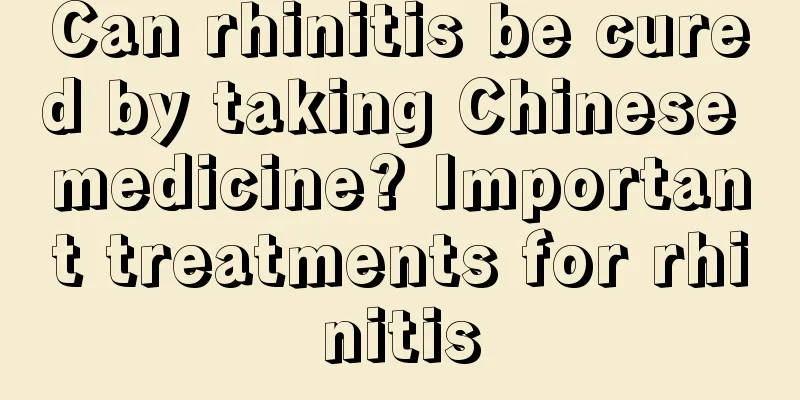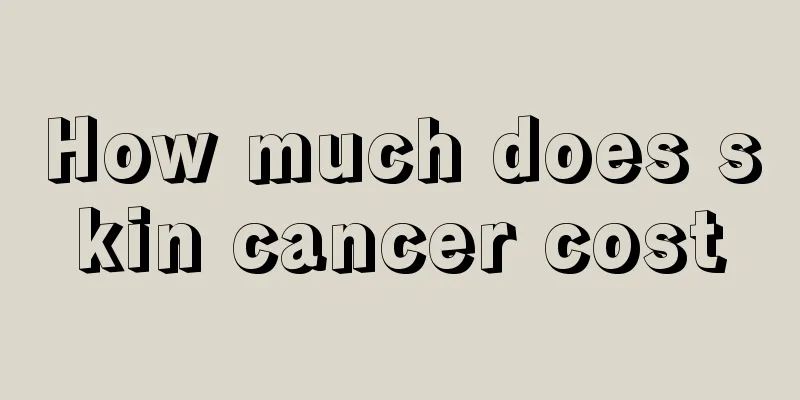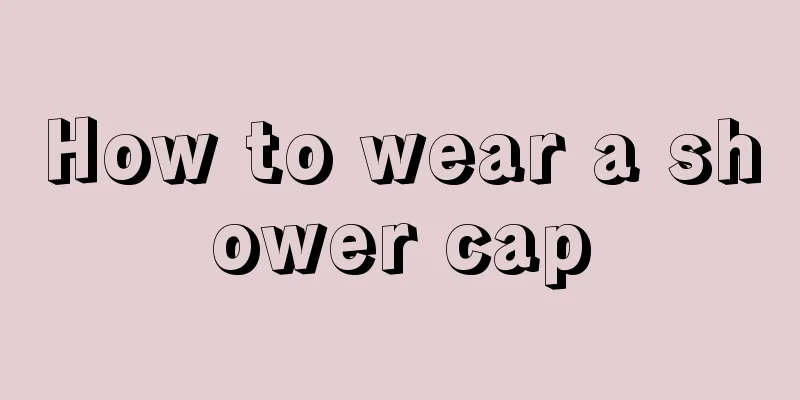Can rhinitis be cured by taking Chinese medicine? Important treatments for rhinitis

|
Rhinitis is a chronic disease. Most cases of rhinitis will last for a period of time after onset and will recur. It is difficult to cure completely. Once encountering weather changes or irritating elements such as pollen, it is easy to relapse. The main symptoms of rhinitis include runny nose, sneezing, nasal congestion and headache. There are many ways to treat rhinitis, and Chinese medicine is also very effective in treating rhinitis. However, patients with rhinitis should still pay attention to physical exercise during treatment. 1. General treatment of mild rhinitis using Chinese medicine You can consult a local old Chinese doctor to prescribe Chinese medicine and boil it to drink. Generally, there will be medicines such as magnolia flower, Xanthium sibiricum, and Scutellaria baicalensis. You can also take Chinese patent medicine. The time of taking the medicine will vary depending on your individual condition. If your rhinitis is mild, that is, you may have nasal congestion and sneezing but they are rare, they will be relieved after taking the medicine soon. 2. Using Traditional Chinese Medicine to Treat Chronic Rhinitis with Mixed Internal and External Therapy If your rhinitis condition is neither serious nor mild, that is, nasal congestion, yellow tongue coating, backflow of runny nose, decreased sense of taste, or extreme discomfort in the throat due to backflow of runny nose, then you must stop it as soon as possible at this stage. Some patients with chronic rhinitis suffer from visceral imbalance. Generally speaking, people with weak lung function are prone to nasopharyngeal problems, so at this time, we have to consider using internal methods to treat chronic rhinitis. The specific Chinese medicine prescription must be diagnosed by the patient in person at the hospital, and the medicine must be prescribed according to his or her own constitution. The author once took the medicine orally for a month and followed the doctor's instructions, strictly observing food taboos, such as not eating fruits at room temperature, not eating cold rice, etc., and the effect has been significant so far. In addition to oral medications, the next option is external use. At that time, I used nasal essential oil. There are many brands on the market, but to distinguish the good from the bad, it is best to buy it from a well-established store. If some patients have used a nasal wash device or nasal drops before, the effect will be slower if they use this kind of Chinese herbal nasal oil. However, the most important thing in treating chronic rhinitis is patience. You must take medication consistently to see the light of recovery. In addition, you should eat more honey, which has a good auxiliary effect on the recovery of chronic rhinitis. As long as patients persist, they will benefit. Most patients with rhinitis recover after 2 to 3 months or even longer. 3. Notes Always keep the room clean and tidy, and ventilate the room frequently. You need to maintain a happy mood to keep your qi flowing smoothly and not lose your vital energy, so that chronic rhinitis can get better quickly. Soaking your feet in hot water until your back sweats slightly can also effectively relieve nasal congestion. |
<<: What are the scientific taboos of shaving baby hair?
>>: What should I do if my rhinitis gets worse when I use air conditioning?
Recommend
How to increase platelet count_How to increase platelet count_How to increase platelet count
If there are too few platelets, it is not a good ...
What to do with the pits left by acne? 7 medical beauty treatments to remove pits
Although the acne of many people has healed, it i...
Why is mixed cervical spondylosis the most common
Various types of cervical spondylosis are caused ...
Is skin cancer on the arm contagious?
Many patients and friends are always worried abou...
How to remove the red bloodshot eyes
It is very common for modern people to stay up la...
What are the benefits of Chinese medicine in treating skin cancer
In recent years, skin cancer has gradually risen ...
How to treat dark circles
How to treat dark circles? We are all familiar wi...
What are the symptoms of high creatinine?
Whether creatinine is within the normal range, hi...
What methods can truly prevent breast cancer
There is a phenomenon of gradual tumors in the br...
Cervical cancer may be caused by reproductive factors
Cervical cancer may be caused by reproductive fac...
What are the causes of dull pain in the right abdomen
The right abdomen is where the liver is located. ...
How to educate a child who loves to lie?
Children are innocent. Most of them can maintain a...
What are the complications after renal cancer metastasis?
Kidney cancer is a common disease among the elder...
Does liver pain mean liver cancer? Several reasons for liver pain explained in detail
Many people think that liver pain is a symptom of...
Introducing the mid-term symptoms of ovarian cancer
When ovarian cancer develops to the middle stage,...









